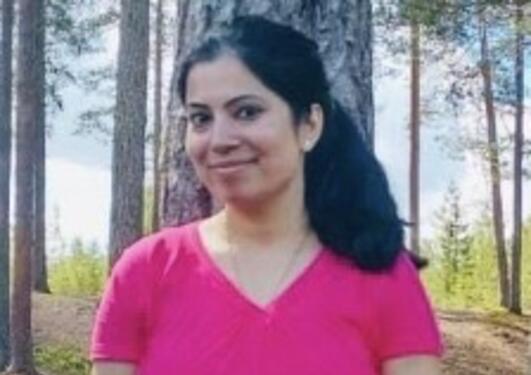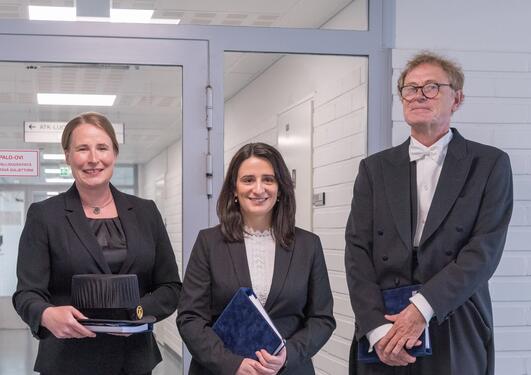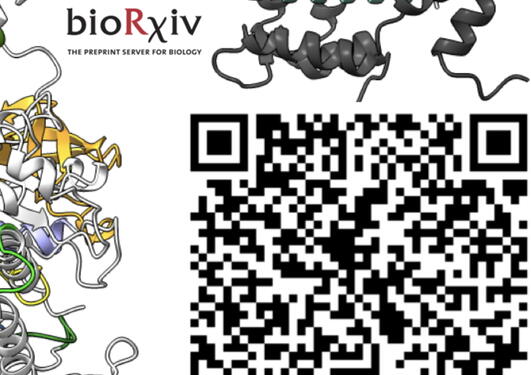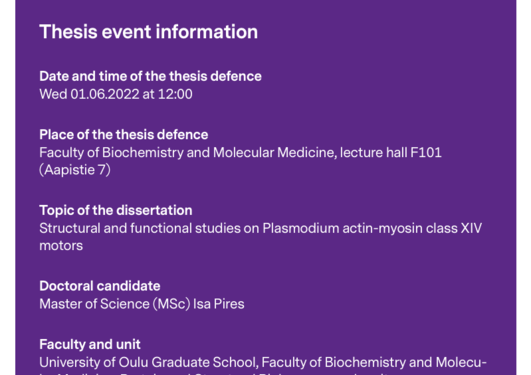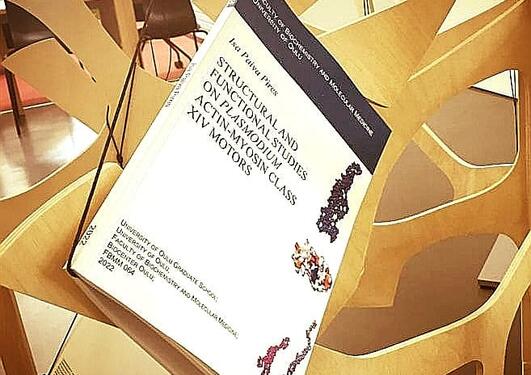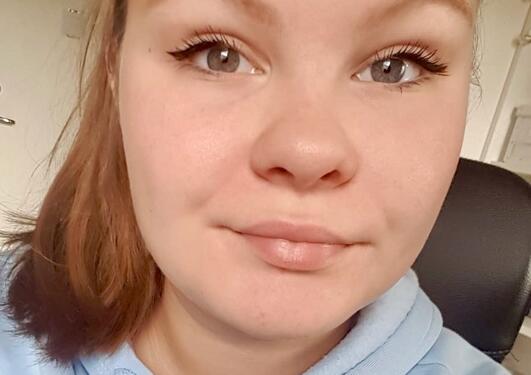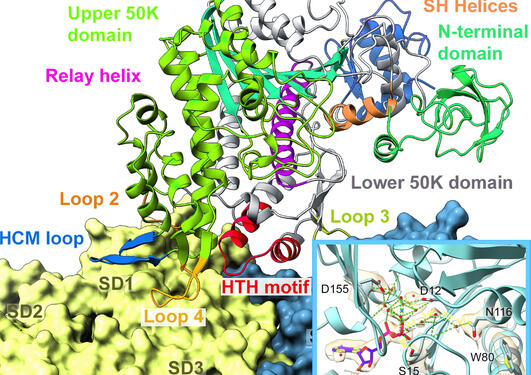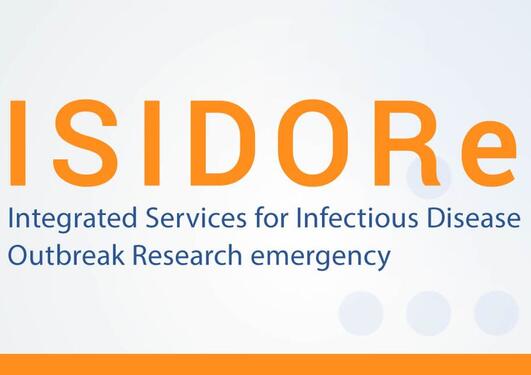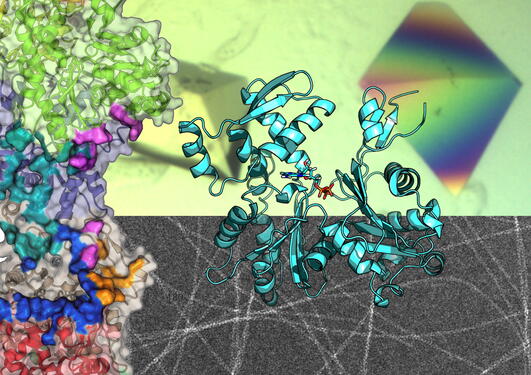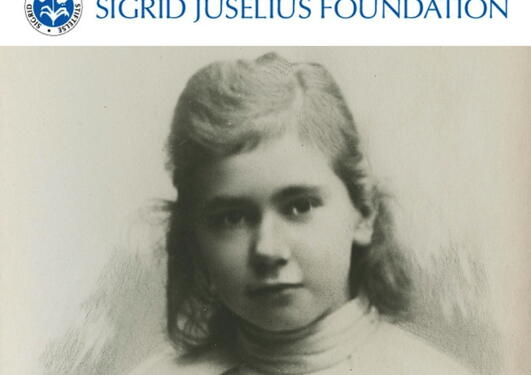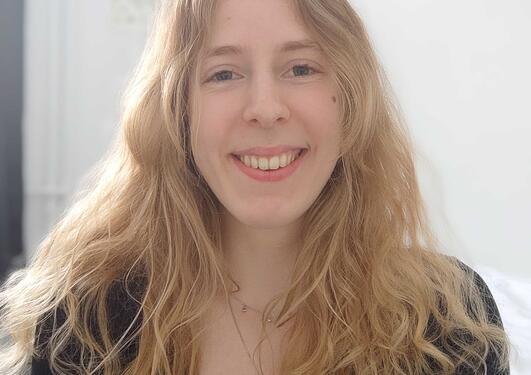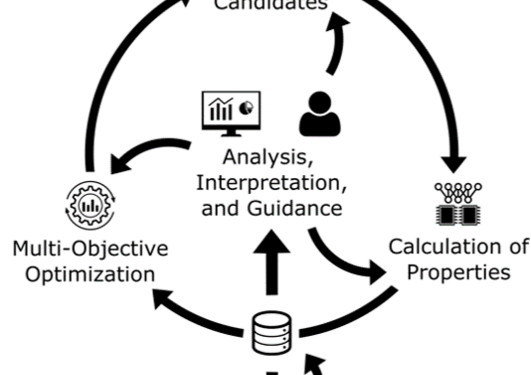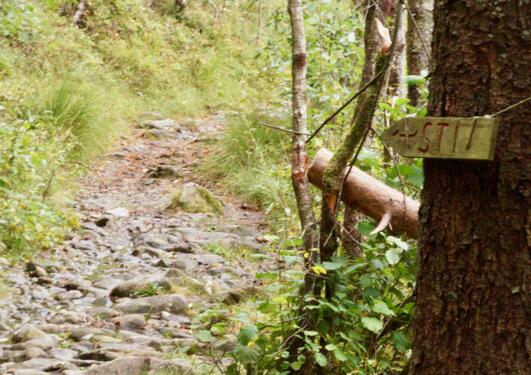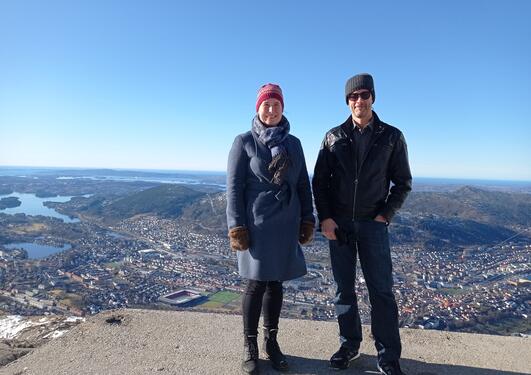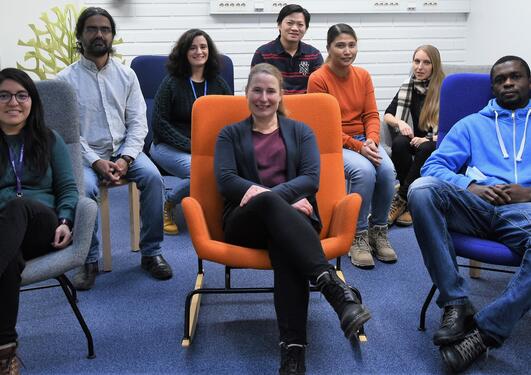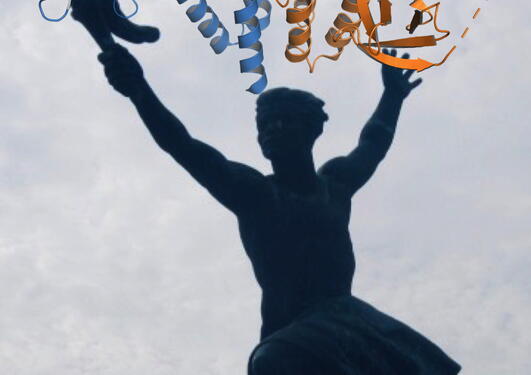News archive for Biorecognition
Today, Kalyani Mukherjee joined our group as a PhD student, funded by a stipend by the Sigrid Jusélius foundation.
On Wednesday June 1st, Isa defended her PhD at the University of Oulu. The opponent was Professor Alf Månsson from the Linnaeus University, Kalmar, Sweden. We all could enjoy an interesting dialogue on myosins and motility, and Isa rocked all the way. Thanks to everyone involved and huge congratulations to Dr. Isa Pires!
Isa's work on Plasmodium falciparum myosin B is out on the preprint server bioRxiv - just in time for her PhD defense. Hopefully soon in peer-reviewed form too.
This week, Jude Santhampillai joined our group in Oulu as an orientation student and will work for three weeks with Henni.
We have a new PhD thesis hanging out for public display in the Tree of Science at the FBMM, University of Oulu. On June 1st, Isa will defend her thesis "Structural and functional studies on Plasmodium actin-myosin class XIV motors". The opponent will be Professor Alf Månsson from the Linnaeus University, Kalmar, Sweden. Looking forward to an interesting examination - stay tuned!
This week, Maiken Fridal Trones is joining us as a MSc student in our lab in Bergen. She will be working on some interesting mutants of Plasmodium actin.
Malaria is one of the most devastating infectious diseases in the world. The parasites causing malaria move by gliding, for which force is generated by an unusual actomyosin motor. We have determined high-resolution cryo-EM structures of the parasite actomyosin and actin filaments and a lower resolution reconstructions of the myosin light chains in the complex.
A large EU consortium got funding to integrated services for combatting current and future infectious disease outbreaks. BiSS is part of this consortium and offers fragment screening.
Post-doctoral (or graduate student) position in structural biology of parasite motility (17.03.2022)
We are looking for a post-doctoral fellow or possibly a highly-qualified PhD student for a 3-year project (with an option for an extension of one year) in my group at the Faculty of Biochemistry and Molecular Medicine (FBMM), University of Oulu, Finland.
The overall aim of my group is to understand the molecular mechanism of malaria parasite gliding motility. For this, we use a wide variety of... Read more
Our group in Oulu was granted 72000 € from the Sigrid Jusélius foundation for the period 1.5.2022-30.4.2023. This is the first year of three, so the total amount will be 216000 € over three years. This secures the future of our group in Oulu in a rather difficult financial situation. We feel utmost gratitude for the almost continuous support we have received for our work on malaria from the... Read more
This week, we have had the pleasure to welcome Léa Gelez as a trainee in our group in Oulu. Léa studies biology and biochemistry at the University of Lille in France and is currently doing an Erasmus exchange in Oulu. She will spend 8 weeks in our lab, learning and helping with actin mutagenesis and characterizing some interesting mutants.
In addition to the travel grant, this week brought us two other positive decisions for small-scale funding. We also got 60000 NOK for consumable costs from "Det alminnelige medisinske forskningsfond" of the UiB and Inari got 150000 NOK from the Meltzer Research Fund to be used for a sabbatical year, which hopefully will be granted for 2023. More on that later.
Project funding from the NFR to carry out a collaborative project on expert-enhanced de novo design of small molecules.
Often our path seems rocky, at times completely lost, but sometimes we find pointers to some light at the end. Today, we were given a travel grant of 50000 NOK from the University of Bergen and the Meltzer Research Fund to enable data collection and collaborative visits to get some science done also this year.
One of the things we have been missing a lot from "normality" is to visit our collaborators and friends and host them in our lab. As one step towards normal times, we had the pleasure to get Herwig Schüler from Lund to visit our lab in Bergen.
On a rare occasion, almost the whole IK group got together in Oulu, so we of course took the chance to have a photo shoot! What a lovely bunch of people we are!
Malaria is one of the most devastating infectious diseases in the world. The parasites causing malaria move by gliding, for which force is generated by an unusual actomyosin motor. We have determined a high-resolution crystal structure of one of the key regulators of parasite actin dynamics, the homodimeric actin capping protein alpha.
Pages
- March 2025 (1)
- August 2023 (1)
- July 2023 (1)
- March 2023 (4)
- February 2023 (1)
- December 2022 (3)
- November 2022 (1)
- October 2022 (5)
- September 2022 (2)
- June 2022 (1)
- May 2022 (4)
- April 2022 (3)
- March 2022 (7)
- November 2021 (3)
- August 2021 (1)
- June 2021 (1)
- May 2021 (1)
- April 2021 (1)
- January 2021 (1)
- December 2020 (1)
- March 2020 (2)
- February 2020 (1)
- January 2020 (1)
- December 2019 (1)
- September 2019 (1)
- August 2019 (1)
- May 2019 (1)
- April 2019 (1)
- December 2018 (1)
- October 2018 (1)
- October 2017 (1)
- March 2017 (1)
- December 2016 (1)
- November 2016 (1)
- September 2016 (1)
- August 2016 (3)
- June 2015 (1)
- January 2014 (1)
- November 2013 (1)
- October 2013 (2)
- June 2013 (1)
- September 2012 (1)
- March 2012 (1)
- November 2011 (1)
- October 2011 (1)
- April 2011 (1)
- December 2010 (1)
- January 2009 (1)
